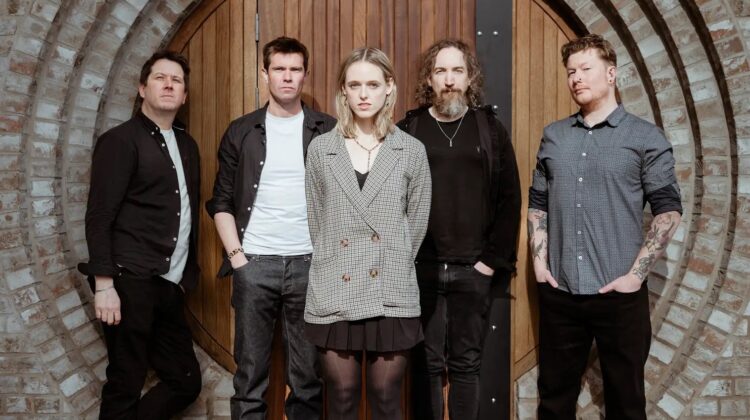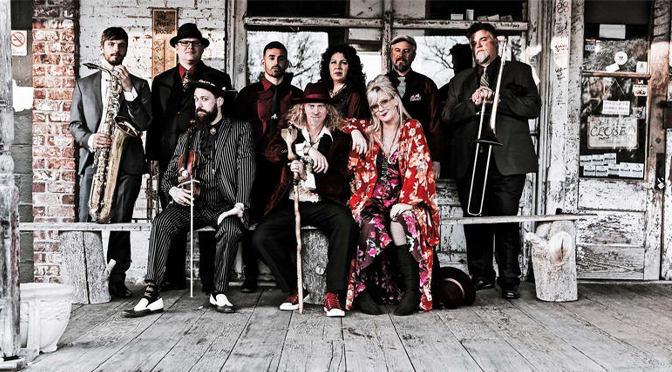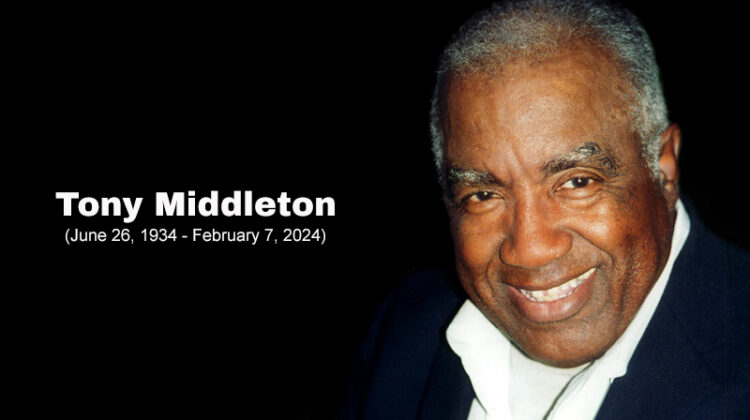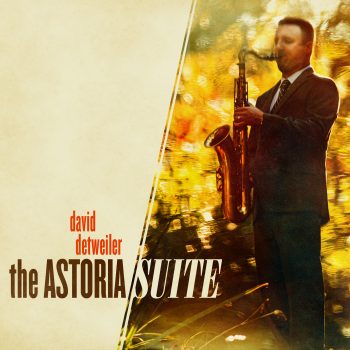NEW YORK CITY, N.Y. – Familiar places and scenes can rekindle memories, revive friendships, and renew passions. For saxophonist and composer David Detweiler, returning to New York did this and more, as his time away from a place that he previously called home brought about fresh perspective.
David Detweiler is no stranger to life’s motion. Born and raised in Houston, TX but having lived on opposite sides of the United States in both New York and Florida, Detweiler is well acquainted with changes of scenery and shifting definitions of home. In 2010, Detweiler returned to New York, moving to Astoria, with his wife after living in Florida. What was, at first, perhaps just an overdue homecoming took on an unexpected quality as Detweiler looked upon the familiar with new eyes tinted by time and experience apart from New York. New details came into focus, new questions sought to be answered, and emotions and memories both deepened and transformed. A musician first and foremost, Detweiler processed and evaluated this new perspective expressively through composition. The end result of this was the Astoria Suite.
The Astoria Suite began as a series of individual compositions – moments of beauty, observation, and reflection brought about by Detweiler’s newfound perspective. Over time, these distinct pieces began to become something more, as themes, melodies, and rhythms began subtly overflowing from one to the next, creating an undercurrent between them that bespoke a unified narrative. With Astoria as the common thread, these pieces became interwoven until they were undeniably more than a mere collection, and thus became the Astoria Suite.
What immediately strikes a listener about the Astoria Suite is Detweiler’s orchestrational choice of omitting a chordal instrument. Leaning directly into the lineage of tenor saxophonist icons such as John Coltrane, Sonny Rollins, and Joe Henderson, Detweiler and his band pay homage with this format both to the musical legacy of chordless trios and to the contemplative concepts found on many such records. The nature of this ensemble was chosen in part to allow for expression in a unique idiom with fewer boundaries, and showcases a soloist’s musical maturity through balancing unbridled creative freedom with bearing the onus of defining the harmony.
Part of the significance of the Astoria Suite is that while it is conceptually rooted in a location, it does not rely solely on geographical elements to tell its story. Rather, it acknowledges the lives of the people who define the location to add fullness to its narrative. One such example is Song for Julie. This piece was written for Julie Schumacher Detweiler, David’s wife. “[Julie] has always been a constant supporter of my musical career,” Detweiler remarks admiringly. “She is just a great person all around.” Within the suite, Song for Julie holds metaphorical significance as Julie had previously lived in Astoria before returning to it with David. She too shared the new viewpoint gained by returning after being separate from it for so long. In the vein of acknowledgement, the track Singularity stands out from the rest of the album as it was written by and features trombonist Kevin Jones. Despite being written by Jones, Singularity – whose melody was written as a contrafact on Charlie Parker’s Confirmation – functions beautifully as part of Detweiler’s suite, a testament to both their musicianship and skill in collaboration.
When asked about the personnel choice for Astoria Suite, Detweiler does not rein in his admiration and gratitude. “Leon Anderson is my colleague at Florida State University and is one of my favorite drummers around,” Detweiler states. Above all else, Detweiler admires Anderson’s ability as a responsive and tasteful accompanist who “really listens to you as a soloist.” Astoria Suite features up-and-coming bassist Mikailo Kasha. “Kasha is a young phenom on the bass,” Detweiler remarks, “and I believe that we will be hearing from him on the national and international level soon.” Praised in particular for his technical prowess and mature rhythmic and groove conception, Detweiler marks Kasha as a musician to watch. Kevin Jones, a trombonist, composer, and pedagogue, contributes and performs two original pieces on Astoria Suite. Praised as a level above the rest, Detweiler admires Jones as undoubtedly “one of the top trombonists and jazz educators in the country.”
Astoria Suite stretches beyond the bounds of a mere album. It is a thought process, a reflection, a moment and viewpoint of the human experience as it witnesses the intersection of place and time. With Astoria Suite, David Detweiler has shared both his eyes and ears with audiences as he tackles head-on humankind’s only constant: change.
Astoria Suite releases on NextLevel, an imprint of Outside in Music, on January 22, 2021.
About David Detweiler:
Tenor saxophonist, composer, educator, and Vandoren Artist David Detweiler was born in Houston, TX where he attended High School for the Performing and Visual Arts. Since then, he has earned his BM from William Paterson University, MM from Florida State University (2010), and DMA from the Eastman School of Music (2015). In 2016, David joined the Florida State University faculty as Assistant Professor of Jazz Saxophone after serving as Director of Jazz Studies at Nazareth College in Rochester, NY. David has released two albums as a leader, New York Stories and The David Detweiler Trio Featuring Fumi Tomita and Alex Patrick, with his third album, Astoria Suite, releasing on NextLevel in January 2021.NEXTLEVEL is an imprint of Outside in Music, dedicated to early career and first-time bandleaders seeking to make an impact on the music. OUTSIDE IN MUSIC is a record label and media company that exists to serve musicians. We are a community that strives to lift its artists above the noise of the 21st-century music industry and make music that expresses the sounds of today’s wide-ranging jazz and creative music scene.












